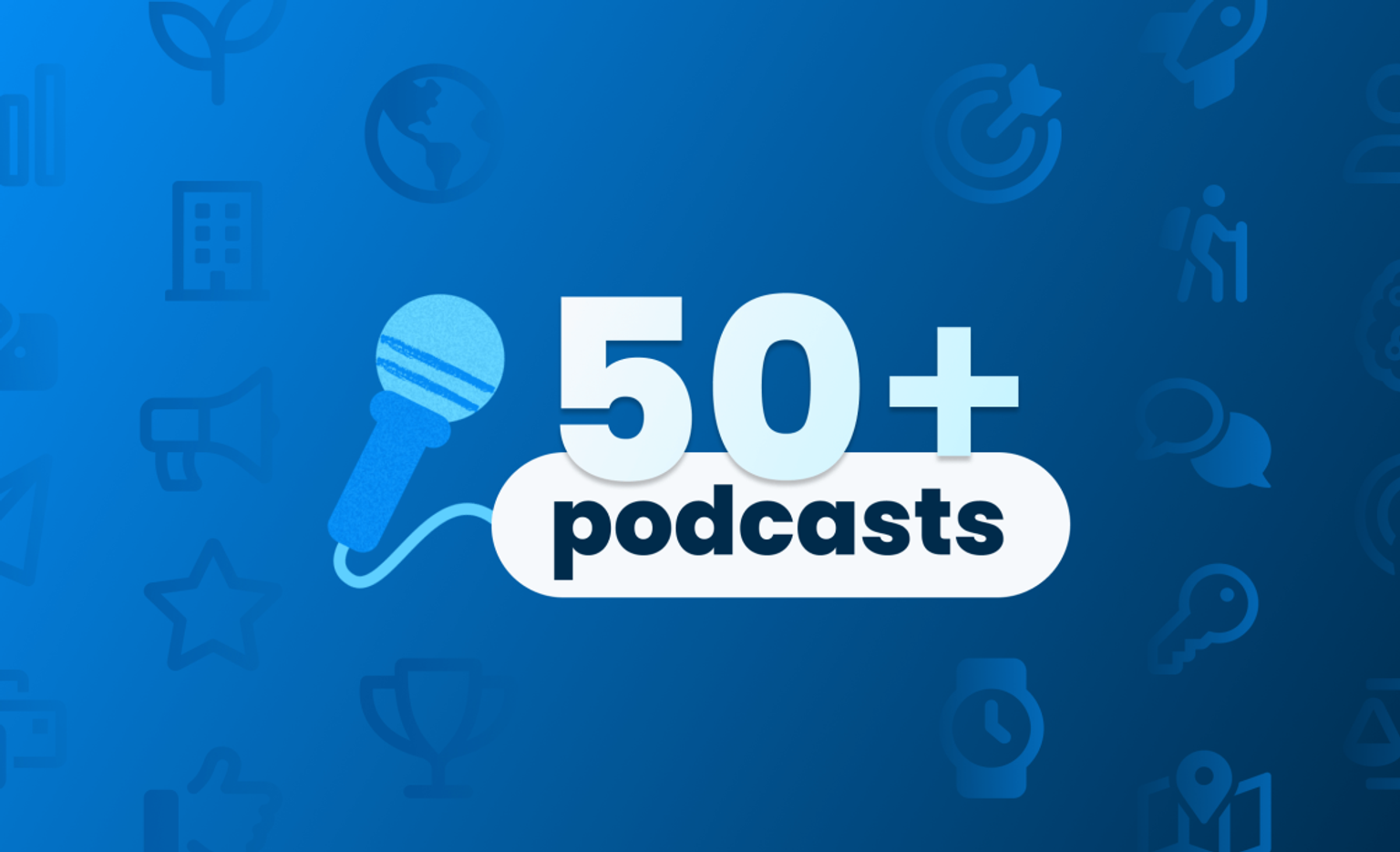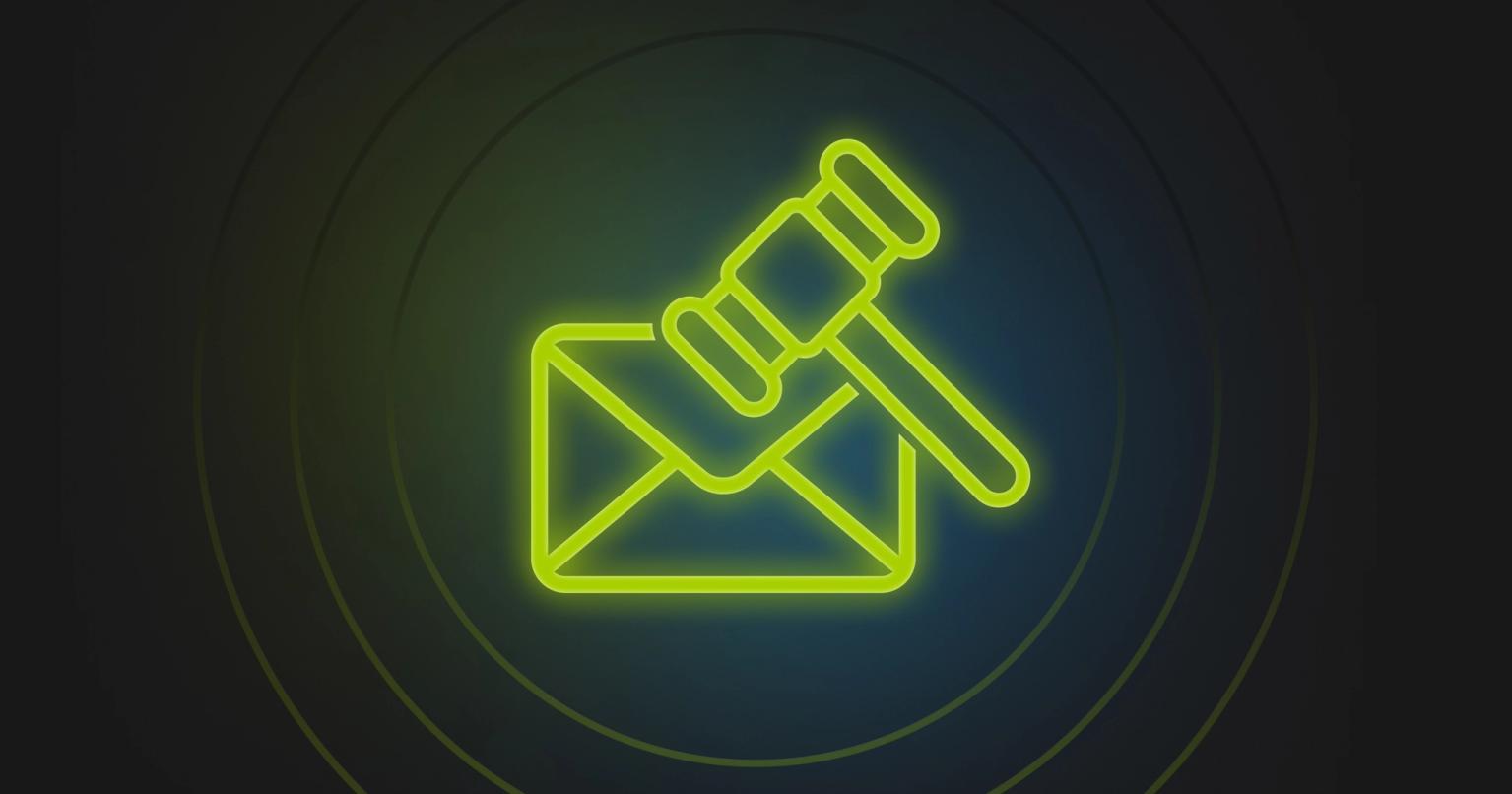What I’ve learned after hosting 50+ podcast episodes.

In December of 2020, I began hosting a podcast called Unsubscribed!
More than two years on, and with more than four dozen episodes under my belt, I’ve come to very much enjoy my role as a podcast host – so much so that our new office includes a purpose-built recording studio.
In this post, I want to explain why hosting a podcast can be valuable for any businessperson.
I also want to demystify the podcast creation process by providing tips on what you need to create your own. It’s easier than you think!
Don’t get too hung up on what your podcast is about
There are many podcasts out there, so naturally you should spend some time figuring out what will differentiate yours from all the others. I know that before I got going, I struggled with what my podcast would be about.
But one of the things I’ve learned is that you don’t have to have everything figured out before your first episode. It’s way more important to just get started, even if you only have a rough idea of what your podcast will be about. Things will grow organically from there.
I wanted my podcast to be about business in general and marketing in particular, and I knew I wanted it to focus on providing career advice to people looking to advance their careers. Over time, it’s evolved into an entrepreneurship-business-marketing podcast – and that’s fine.
So embrace the uncertainty. After 50-odd episodes, I’m still figuring out what my niche is. And I’m having fun doing so.
Decide what your style is – and work to perfect it
While you shouldn’t get hung up on your podcast topic, I do advise putting some serious thought into your podcast style. That’s because a podcast will sound awkward – and be harder to carry off – if the style doesn’t fit your personality.
There are many different styles of podcast. Some are clever monologues by the host; some involve a conversation between two or more people; some skew towards entertainment.
If you’re unsure what your style is, listen to a variety of podcasts and see what resonates. I decided that my podcasts would involve me interviewing guests. That’s a good fit for me because I am naturally curious.
But it’s not enough to match the podcast style to your personality. Unless you’ve been a radio host before, you also need to work on polishing your chosen style.
For example, I am working on developing my skills as an interviewer.
One of the hardest things for me as an interviewer is to learn to be ‘present,’ to really listen to what my guests are saying. I’ve learned I can never make assumptions about what they are going to answer. Sometimes, I have to ditch the next question and build on what they’ve just said.
Ease into it
It can be tempting to try to make a big splash with your first podcast, for example by having a big-name guest as your first interviewee.
I advise against that.
Better to have a soft launch and ease into the whole business. Take time to become comfortable with the role of podcast host before going for a big-name guest. Iron out technical glitches that are bound to come up. Only then should you take things to the next level.
I started my podcast by making a list of interviewees among people I already knew. At the time it seemed counter-intuitive. Shouldn’t I go big right from the start?
In retrospect, I am glad I didn’t. It was better for me to get comfortable in my new role. And by the time I did approach higher-profile people outside my contact list, not only was I comfortable as a podcast host, I also had a track record I could show them.
Realize that a podcast will benefit you as much as your listeners
I realized very early on that my podcasts provided me with a big, and totally unexpected, bonus. I can make my podcasts into learning opportunities for me by choosing to interview guests who are experts about whatever topics I want to explore.
I work hard to make each podcast interesting to listeners by asking questions they (and I) want answers to. If the listeners learn something, great. And if my podcast gets a lot of listens, shares and likes, even better. But even if not a single person tunes in to my podcast (highly unlikely), I’m still ahead of the game because I will have learned something useful from my guests.
Success isn’t just about listens, likes and shares
You’d think that the main measure of success of a podcast is the number of people who listen to it. I would argue, that’s not the case.
First of all, as I just mentioned, the host can use the podcast as a learning opportunity by choosing guests who have important knowledge they are willing to share.
But a podcast can also be useful to build relationships. You’ll get to know your guests a bit better, and they will get to know you. My view is that I get to spend an hour talking to an influential, super-smart person who is usually well-connected in the Martech space. I get them to talk about things they are knowledgeable and passionate about and that are useful to me. How cool is that?
A podcast is also good for brand promotion and recognition.
We promote our podcasts on LinkedIn and Twitter, and the people I interview promote us in their networks. It’s win-win in that we all increase our visibility. (I’ve noticed that our guests will promote the podcast in their networks if we do a good job of promoting it in ours.)
A good podcast, well promoted by us and by our guest, can register on the radar of tens of thousands of people. Even if they don’t listen to the entire podcast, they are exposed to it and that’s beneficial for all concerned.
Over time, exposure builds the audience.
Getting guests is not as difficult as you might think
People love to talk and share their story, so as a rule it’s easier than you think to get people to talk. I estimate that about 90 per cent of the people we approach agree to take part in an interview. (It probably helps that I know or have a professional relationship with most of the people I approach.)
Marketers in particular understand the value and the power of marketing, so they are typically very open to taking part in an episode.
One advantage of my style of podcast (the interview) is that guests don’t have to spend any time preparing. It’s not like they’re doing a webinar or a keynote speech. They just have to show up and respond to my questions. It’s very simple, very low-stress, and requires very little in terms of time or commitment. That helps convince them to take part.
There are some people who are reluctant to talk. Often these people think they aren’t expert enough in whatever we’re going to talk about, and usually they aren’t giving themselves enough credit.
But if they don’t want to talk, ultimately that’s OK.
Technical set-up is surprisingly simple
You need some basic equipment and a few technical skills to create a podcast; thankfully, none of all this is too expensive or too difficult.
The first necessity is a good microphone. The one on your laptop or phone is good, but it’s not good enough for a professional-quality recording. You can really tell the difference. So if you’re serious about a podcast, take it to the professional level. The Shure podcast microphone we use cost only a couple of hundred dollars and it’s well worth it.
The next necessity is a recording platform.
We initially used Zoom. But while Zoom is great for meetings it’s not so good for podcasts because its really geared towards having one person speaking at a time. We eventually settled on Riverside.fm, an online recording and editing studio for podcasts.
And to push our podcasts out, we use Spotify’s Anchor.
We also ask our guests to use the best microphone possible and of course be in a quiet space when I interview them.
Treat the podcast as a regular, ongoing task
A podcast should appear regularly, so we like to keep on top of things.
We keep a spreadsheet with a list of guests and potential guests.
As host, I personally invite the guests to participate in an episode.
If I’m inviting a high-profile guest, or someone who doesn’t know me, I will send them a link to the podcast so they can see what we’ve done in the past and who else has been on.
I will also check out what podcasts a guest has done, so that we don’t duplicate something that’s already out there, and look over relevant material about them, starting with their LinkedIn site.
My calendar is blocked off every Monday at noon for podcast recording. That gives me the morning to prepare.
I create a short intro for each guest and come up with eight or 10 questions for them to answer. I also have five rapid-fire questions that I want them to answer quickly.
Some guests will ask to see the questions in advance. I avoid doing that if at all possible, because I want our discussion to feel conversational and spontaneous.
While our recording platform, Riverside, does allow for editing, I try to avoid having to do it because editing can be time consuming.
After the podcast is recorded, I send our guests a hand-written thank-you note and a bit of Knak swag as a souvenir.
The final piece of the puzzle is promotion.
Monitor feedback
You will get feedback. It pays to listen to what listeners are saying. For example, I have been told by listeners that I should express my point of view more often. But my style is to have my guests express their perspective, not take up time with my own. While I may occasionally give my point of view, it’s all about striking a balance, and I want my guests to be heard.
Build on your passion
To create a successful podcast, you need to figure out what it is that is going to make you want to commit time and effort to the process. So the final element is my list is for anyone creating a podcast to follow their passion.
If you’re passionate about something, listeners – and the people you talk to – will hear it in your voice. And besides, what business person doesn’t want to learn more about something they’re passionate about?
I’m passionate about marketing and entrepreneurship. And if you are too, or if you are simply curious, you can hear my take – and my guests’ – on my podcast, Unsubscribed!

Author
Co-founder & CEO, Knak
Pierce is a career marketer who has lived in the marketing trenches at companies like IBM, SAP, NVIDIA, and Marketo. He launched Knak in 2015 as a platform designed to help Marketers simplify email creation. He is also the founder of Revenue Pulse, a marketing operations consultancy.











